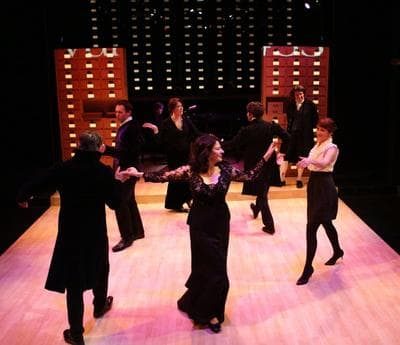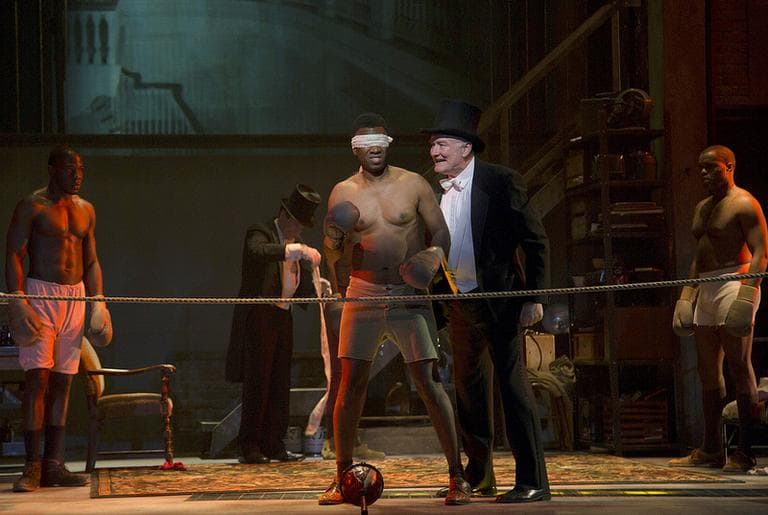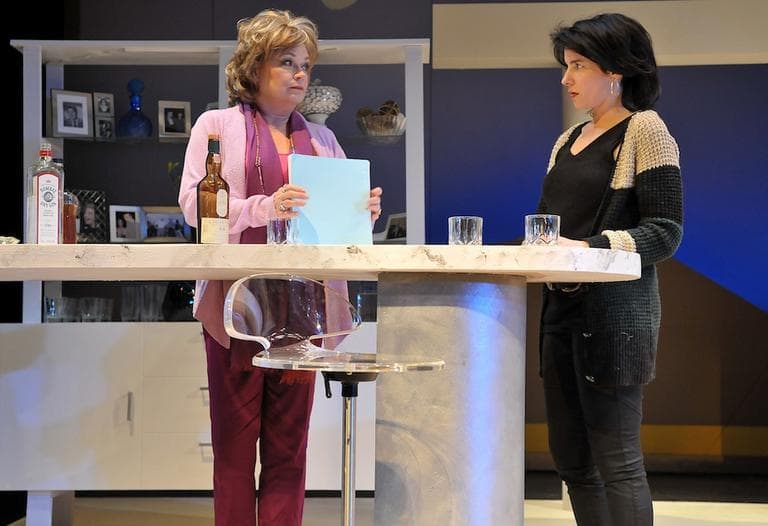Advertisement
REVIEWS
Boston Theater: The Lyric Makes Beautiful Music
Resume
Who would have thought that with all the anticipation in the area over “Pippin,” “Invisible Man,” "Our Town" and “Other Desert Cities” that the most satisfying production of them all would be the Lyric Stage Company of Boston’s “33 Variations” (through Feb. 2)?
This is the play by Moisés Kaufman about Beethoven’s “Diabelli Variations,” particularly why he wrote so many variations about an inconsequential waltz by his publisher, who had only asked him for one.
Spiro Veloudos, the artistic director of the Lyric almost always does a fine job of finding the emotional center of plays that might seem cerebral at first blush. Paula Plum, one of Boston’s best, plays a latter-day musicologist who’s suffering from an illness that somewhat mirrors Beethoven’s deafness. She wants to unlock the secret before her illness stops her completely.
The role was originated by Jane Fonda in New York, but Plum could be my musicologist any day. And by going back and forth between Beethoven writing the piece and the musicologist studying it, Kaufman does a great job of explaining how art can stop time in its tracks and find a rare, inspiring sense of transcendence.

At the Huntington Theatre, there's a theatrical version of Ralph Ellison's novel about race consciousness, "Invisible Man" (through Feb. 3). There's always a problem when you have a 600-page novel that you then try to turn into a play. The Huntington production uses all kinds of imaginative stagecraft to make it stage-worthy, but in the end it's still a discursive three hours.
This is a thoroughly honorable, respectful adaptation of Ellison's novel, which so vividly captured how African-Americans were seen, and not seen, in the 1950s. Its champions would say that it also captures a more universal sense of dread about our standing in the cosmos.
I'm not so sure. I think that it feels very specific to its time and place, and to the black experience of the '50s. So a) it's more a history lesson than a play and b) it reduces many of the characters to stick figures. Three hours is a long time in the theater, but not long enough to give the secondary characters much nuance.

Plum isn’t the only wonderful Boston actress onstage these days. Karen MacDonald, Nancy Carroll and Anne Gottlieb play beautifully together in Jon Robin Baitz’s “Other Desert Cities” in a solid SpeakEasy Stage Company production (at the Boston Center for the Arts through Feb. 9) but it’s not enough to make a believer out of me.
Baitz is a fine playwright, but I just don’t buy this story of a lefty writer who intends to blow the lid off her Republican parents’ façade, blaming them for driving her brother to suicide after a fatal explosion that recalls one of the Weather Underground's antiwar bombings back in the ‘60s. There will be a big revelation, which feels like the phoniest part of the play, which in turn never feels real at all, despite the excellent production.
Ed Siegel's full reviews:
This program aired on January 17, 2013.
